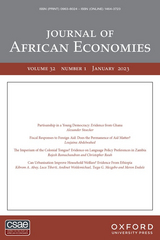
Partisanship in a young democracy: evidence from Ghana
Stöcker, AlexanderExternal Publications (2022)
in: Journal of African Economies 32 (1), 1-25
DOI: https://doi.org/10.1093/jae/ejab031
Information
While past studies have put forward many reasons why partisanship in young African democracies should be considered weak, I show evidence that suggests the presence of strong and stable patterns of partisanship among ordinary citizens. Based on survey data from Ghana, I exploit the variation introduced by the close general elections of 2008 to compare perceptions and attitudes of party supporters when their preferred party is in power and when it is not in a Difference-in-differences setting. The results suggest that partisanship is both meaningful and prompts motivated reasoning among citizens. On the one hand, this can be seen as evidence for a stable party landscape and thus a more mature democracy, but on the other hand, partisan polarization may also obstruct effective governance. Furthermore, the analysis of attitudes towards democratic principles uncovers a double standard that carries the potential to negatively affect efforts towards the consolidation of democracy. A simple heterogeneity analysis indicates that improving education might reduce partisan polarization but will likely not erase it. The analysis further suggests that ethnic identities seem to exist alongside partisan identities, but still, strongly determine the strength of party attachment in Ghana. Future research on political behavior needs to acknowledge the presence of these partisan motives and continue to investigate the impact of partisanship on the further development of democratic institutions in African democracies.

